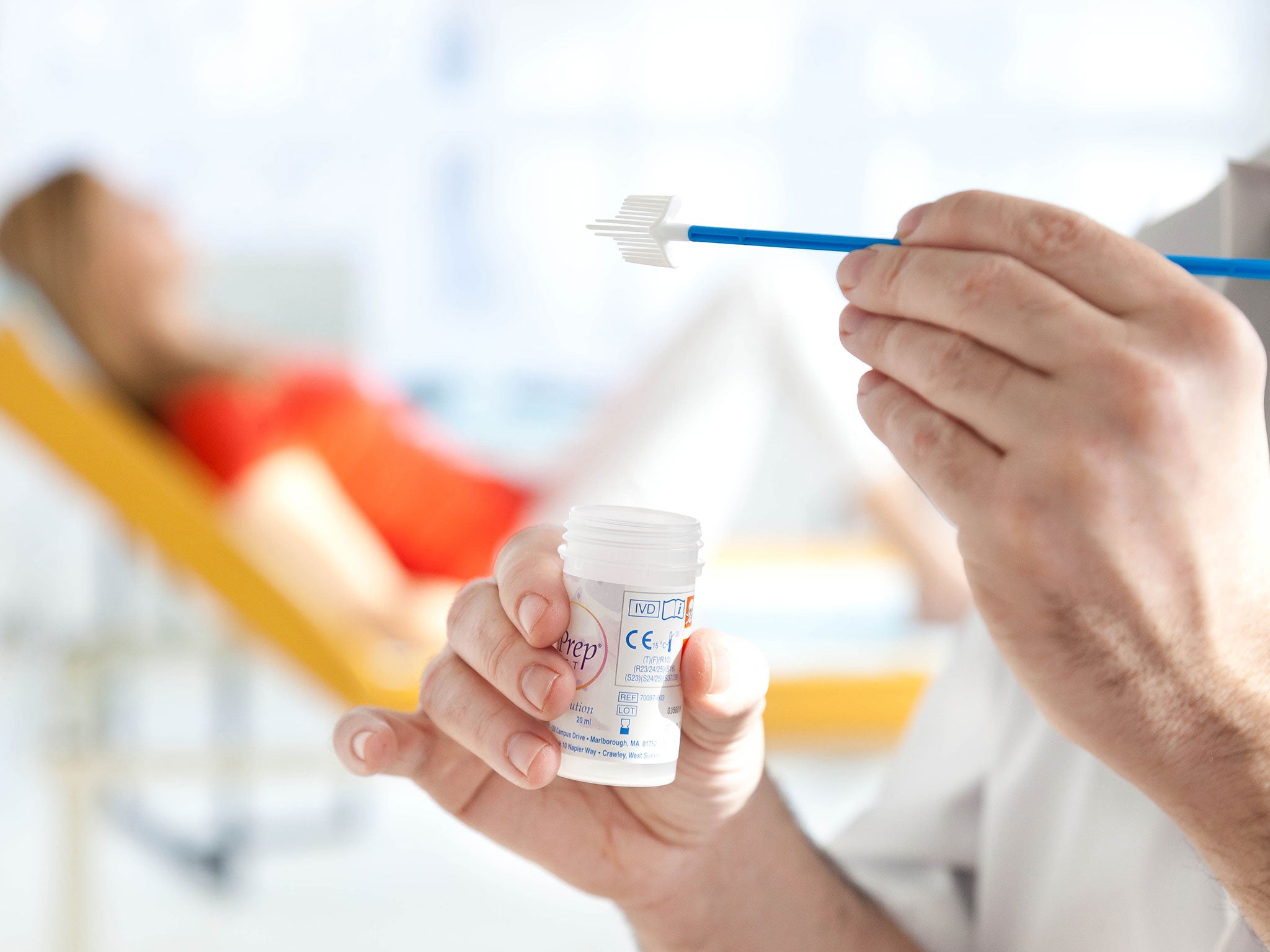New urine test could replace invasive smear tests

A simple urine test which can detect the human papilloma virus (HPV) could offer women a much less invasive alternative to the cervical cancer screening or ‘smear’ test, experts have said.
New research published today has revealed that the tests are accurate and efficient, and the doctors behind the study said that offering the test could help reverse a fall in the number of young women being screened for possible cancer.
HPV is one of the most common sexually transmitted infections and as many as 80 per cent of women become infected at some point in their lives. Usually the virus is harmless but in some cases it can cause changes to the cells which can develop into cancer.
Currently all women in England aged between 24 and 64 are invited for a smear test, to detect for abnormal cells, which could point to a possible cancer. Those aged 25 to 49 are screened every three years.
The process is time consuming and invasive: factors which are believed to have contributed to a fall in uptake of the test to below 80 per cent, with particular declines among young women.
Urine tests that could effectively screen for possible cancer, without the discomfort and embarrassment associated with a smear, have been considered before, but their accuracy has been in doubt.
However, in an analysis of 14 studies involving 1,433 sexually active women, researchers from the Barts and the London School of Medicine and Dentistry observed encouraging results.
Although lacking the proven accuracy of cervical screening, urine tests did detect 87 per cent of positive HPV cases, and 94 per cent of negative cases. Urine tests specifically targeted to detect two strains of the virus – HPV 16 and HPV 18 – which have been found to cause 70 per cent of cervical cancers, were also successful.
Results varied between the 14 studies but, while urging caution, researchers said they were confident that urine testing “should be considered as an accurate and acceptable alternative that could increase screening coverage”.
However, more comprehensive trials of the tests’ accuracy would have to be carried out before they could be considered as part a national screening programme, they said.
If deployed as part of the cervical cancer screening programme, urine tests could be offered as an alternative for women who were reluctant to have a smear test, experts said.
They could also be of benefit in poorer countries which struggle to carry out a comprehensive smear test screening programme.
In the UK, the success of the NHS screening programme means that cervical cancer remains rare, with around 3,000 cases detected each year.
Liz Engel, spokesperson for the Eve Appeal, which campaigns for better detection and improved treatment of gynaecological cancers said: “We will be following the development of this encouraging research closely.”
“A urine test which is much less invasive and embarrassing than the current cervical screening test, more commonly known as the ‘smear’ will undoubtedly have a positive effect on the number of women being tested. Currently approximately 20 per cent of eligible women invited for cervical screening fail to attend and anything that can be done to encourage more women to be screened should save lives.”
Join our commenting forum
Join thought-provoking conversations, follow other Independent readers and see their replies
Comments